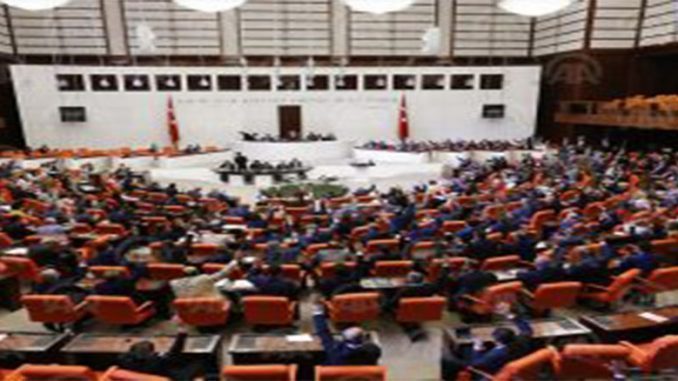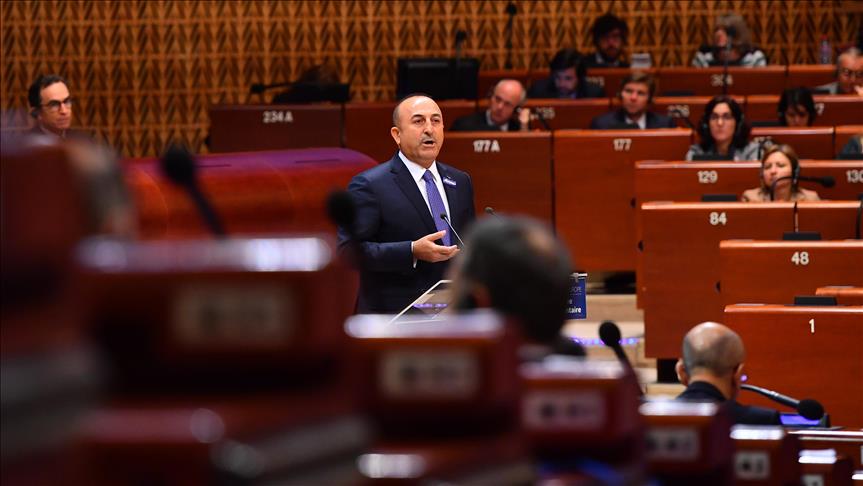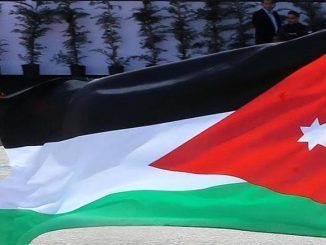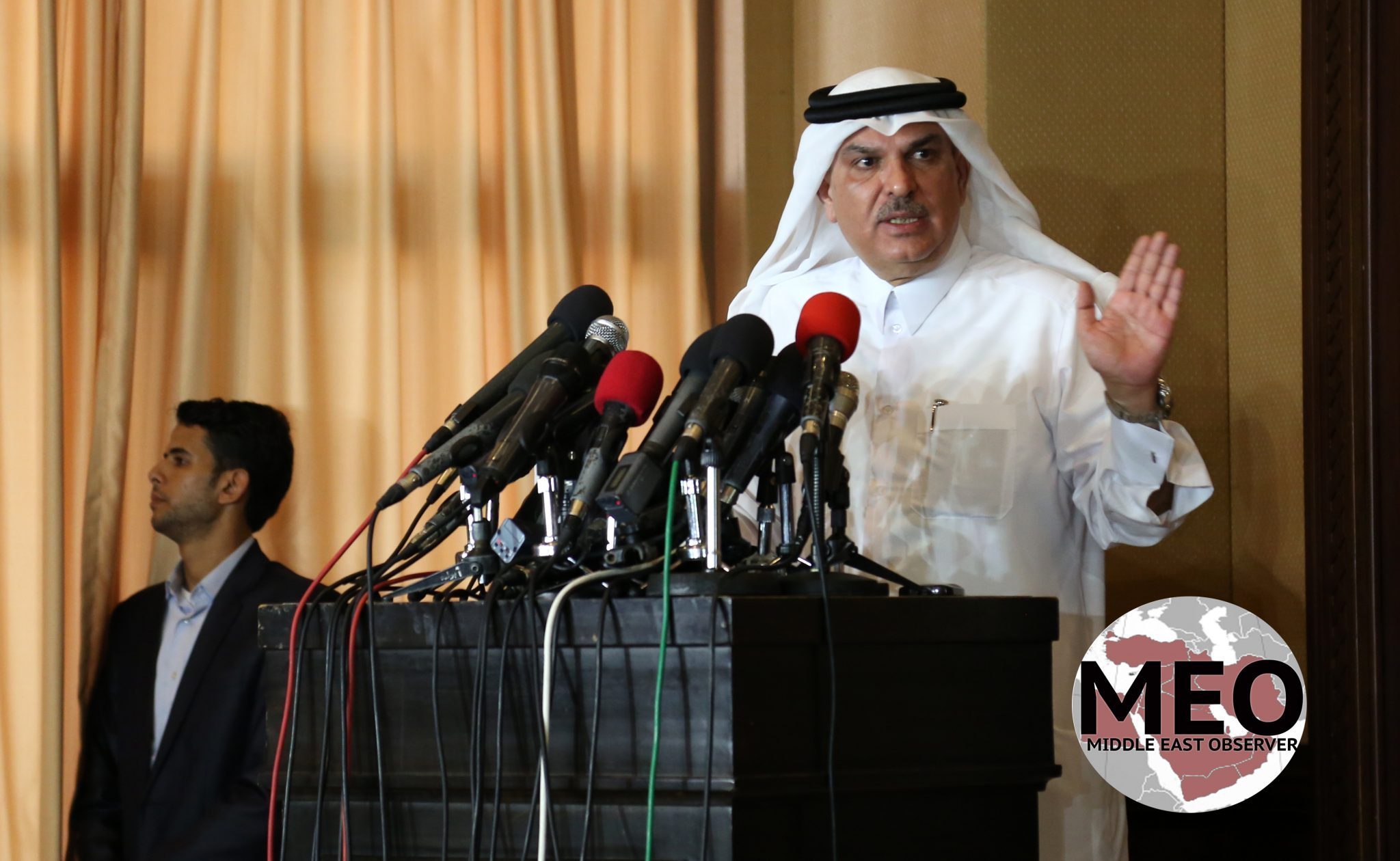
Ankara to deploy extra troops to Qatar as Kuwait seeks to broker deal
Turkey on Wednesday threw its weight behind its ally Qatar, fast-tracking plans to deploy extra Turkish troops to the Qatar as Arab rivals cut transport links and supply lines.
The move potentially puts Ankara on collision course with Riyadh as tensions flare over Saudi-led attempts to isolate Qatar in protest at its alleged support for extremist groups in the Middle East and its softer approach to Iran.
Turkish President Recep Tayyip Erdogan said that it was wrong to impose sanctions on Doha. “It will not contribute to solving any problem to try and isolate in this way Qatar, which we know for sure has fought very effectively against terrorist groups,” he said.
Turkey’s parliament on Wednesday night adopted a law to allow Turkish troops to be stationed on Qatari soil.
Turkish officials were eager to stress that the country wanted to be seen as neutral in the dispute. “We feel Qatar and Saudi Arabia are very close friends and we do not want to differentiate between them and take sides,” said a senior Turkish official. He added, however, that Turkey “will not allow Qatar to be beaten up”.
The show-down with Qatar has created what is arguably the most serious crisis between Gulf nations since since Iraq’s invasion of Kuwait in 1990. The animosity between Saudi Arabia and Iran that partly lies behind it intensified on Wednesday when Iranian hardliners blamed Riyadh for a twin terror attack in Tehran that killed 12 people.
After initially lending his backing to Saudi Arabia’s clampdown on Qatar, US President Donald Trump on Wednesday called Qatar’s emir Tamim bin Hamad to urge a negotiated solution among Gulf countrie. Mr Trump offered “to help the parties resolve their differences, including through a meeting at the White House if necessary”.
Qatari officials have in recent days threatened to quit the six-member Gulf Co-operation Council, the region’s political grouping. Some see Doha forming a new alliance with the similarly pro-Islamist government in Ankara, as well as a closer relationship with Iran.
“Either Qatar makes concessions to bypass this rift, or it escalates,” said Marwa Maziad, a Middle East specialist at the University of Washington. “Qatar might feel cornered and veer closer towards Iran. This is a huge risk which might invite further Saudi escalation.”
Iran and Turkey in 2014 agreed to build a base in Qatar for an estimated 3,000 troops. Around 150 Turkish troops have been stationed in the country since 2015.
A Turkish diplomatic source said that the size of any further troop deployment in Qatar, also home to a large US military base, would be small, perhaps “a couple of hundred”.
“God forbid, if anything happened, would that change anything? No. Think about it, the Americans have 10,000 troops in Qatar, does that mean Americans are with the Qataris? No.”
But the deployment could nonetheless quicken this regional realignment as Doha seeks to build new allies against its neighbors’ economic blockade.
Iran and Turkey have already said they would be able to provide practical assistance in Doha’s hour of need. Turkish eggs are on sale in supermarkets after the borders closed with Saudi Arabia, the usual source.
In a sign of the cold war atmosphere taking hold in the Arabian peninsular, the United Arab Emirates threatening prison sentences of up to 15 years for anyone expressing sympathy for Qatar. Members of the UAE’s Islamist opposition, now largely in exile, have been expressing support for Qatar on social media.
Kuwait’s emir, Sheikh Sabah Al Sabah, arrived in Doha on Wednesday evening, after a brief stop for talks in Dubai, as he continued efforts to resolve the dispute.
According to Sultan al-Qassemi, an influential Emirati commentator, UAE officials are insisting Qatar closes its Al Jazeera television network, as well as other Qatari-funded news outlets that have annoyed Riyadh and Abu Dhabi before any direct talks could start with Doha.
Qatar will probably be asked to expel leaders of the Muslim Brotherhood and Hamas from Doha, among other measures, he added.
One observer with the ear of the Qataris says they would consider toning down news coverage, expelling some groups from Doha, and look at cracking down harder on sources of extremist financing.
“But there are limits on how far he can go, given the intrusion on sovereignty, which would take away their legitimacy to rule,” he said.
As tensions swirl, Doha has been gripped by fear of military escalation or a Saudi-backed coup against the emir.
“Many Qataris hope this will all be resolved soon,” said another veteran Doha-based analyst. “But deep down in their hearts, they fear it could get worse, not better.”
In an interview with Reuters in late 2015, Ahmet Demirok, Turkey’s ambassador to Qatar at the time, said 3,000 ground troops would eventually be deployed at the base, planned to serve primarily as a venue for joint training exercises.



